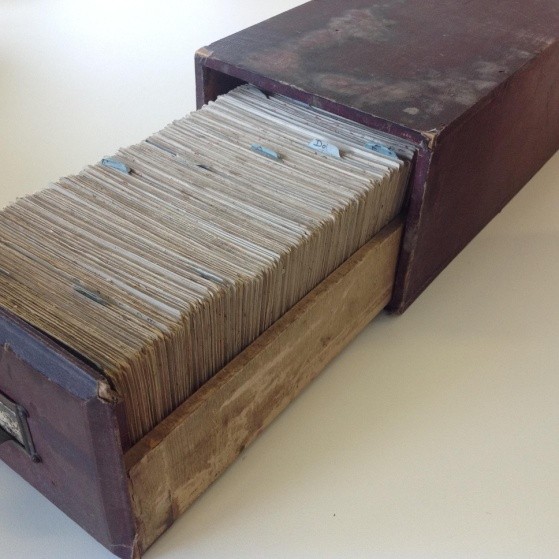WWI Mother of Queenslanders lauded on International Women’s Day
By JOL Admin | 6 March 2015
As part of International Women’s Day on 8 March 2015, State Library salutes Annie Margaret Wheeler. Known to all as the Mother of Queenslanders, this Dingo native went to England in 1913 and became heavily involved in the war effort, providing unimaginable support to Queensland soldiers and their families.
Some one hundred years later, State Library is reviewing and indexing several thousand cards from OM82-67 Mrs. H. G. Wheeler Correspondence that Mrs. Wheeler compiled, shedding light on intimate details of Queensland’s WWI heroes – with her perhaps being revealed as one of the best heroines of all.

Annie Wheeler card index
At the outset of WWI, she took up residence in London, near the Australian Army Headquarters and the Anzac Buffet, Mrs Wheeler endeavoured to contact all soldiers from central Queensland, whether they were wounded, imprisoned, or in the trenches. She kept a detailed card index on them, corresponded with servicemen on the battlefield, forwarded packages and mail, provided for their needs and supervised the care and comfort of those in hospital. For soldiers on furlough, she supplemented restricted allowances and advanced funds when they experienced bureaucratic delays. To them, she became known as the 'Mother of the Queenslanders'. Families in Queensland sent letters and parcels through her: this was the only mail many diggers received. By 1918 over 2300 men were on her books.
Each fortnight Mrs Wheeler sent home detailed letters which were published in the Capricornian and the Morning Bulletin. A special fund to support her work was set up at Rockhampton; early in 1918, when she experienced poor health, Nurse May MacDonald was sent to assist her. The Commonwealth government provided a free passage for Annie Wheeler's return in November 1919. Rockhampton accorded her a hero's welcome: over 5000 people met her train; cheering soldiers towed her car through the streets to a public reception; further functions followed in other towns.
C. Cottle, Digital Collections Curator, State Library of Queensland
Comments
Your email address will not be published.
We welcome relevant, respectful comments.